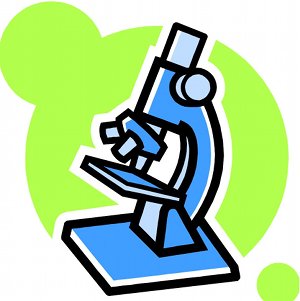This Tuesday I participated in an education for health professionals. I was actually being a “test subject” for a diagnostic test for Asperger Syndrome, the professionals were learning to use. They were watching over a CCTV when I took the test. And, even though I went on with my life after the test was done (yay, work) I am sure they discussed it as well.
The test was pretty different from the Asperger test I took when I got my diagnosis. More of an interview than a test, actually.
Anyway, the curious thing about this test was a question about halfway through. Where the tester says, “imagine I’m from another planet and know nothing about anything earthly… now I’d like you to tell me how you brush your teeth.”
So, the first question I had (and I am sure any Aspie has a similar thought) was, “so, how much theory on chewing, teeth, food, and hygiene do you need… and … Oh I have an electric tooth brush… how about electricity….?”
Of course, it turned out that, nope, this alien that knew “nothing” only needed to know about the tooth brushing per se. (I bet the impreciseness was the real test!)
I’ve heard people working with Aspies say they had no clue how imprecisely they were communicating until they started talking to Aspies. Trust me, I cannot agree more! 🙂
I don’t let people get away with fuzzy or imprecise language. Sure, if it’s lunch time and we’re discussing a movie, I’m fine with having an idea about what they are trying to say, but when it’s talk about how to perform some task at work or in any other project, precise and clear language is a requirement. In most of the cases, colleagues actually appreciate when I make a salesperson, project manager, or other person explain what they mean.
Here’s an example, not from work, but from a course in every day communication. The teacher talks about how a person with AS gave the advice to “scan for their interests when they meet people.” Guess if that one got me started? The very first image I had was of a bar code scanner… like people would have their interests bar coded in their forehead or something just as stupid… Okay, I quickly discarded that one, but still felt the need to clarify this “scanning” business. Do the person ask people if they too have the interest, or do the person listen to what people say to see if they are talking about something “interesting” or, what?
Of course, in this case the word “scan” is supposed to vaguely include everything from listening to asking questions to test what happens if you steer the conversation to topics about the interest to checking for word usage, heck even mannerisms, etc etc.
This, of course, doesn’t always work, like when I used the phrase “going from clarity to clarity” in a mail to a customer and got back “so, are you going to watch the race on Saturday?” It turns out the phrase I used is also used by a Swedish commenter in formula 1 racing…
I’ve noticed that people are very content with not understanding everything they are told. Which of course is very frustrating if you are trying to give someone instructions, get an “ok, I get it”, just to see them walk off in the wrong direction (and not just because there was a mixup in respect to left and right :)).
I also think people with AS are sometimes afraid to ask because they assume they are to blame for not understanding… Which in my experience is an incorrect assumption. By all means, communication is a team work between two or more people. It takes work doing both the “sending” and “receiving”, but that just means that if the sending is sloppy and the reception is poor… both sides have to improve.
So, communicating with an Aspie (well, at least this Aspie) requires precise language, or – hopefully – you’ll get an earful of clarifying questions.
Another thing I’ve observed, in myself, with respect to language and the meaning of words, is that I interpret things literally. This isn’t really something I strain to do, rather the opposite. Hearing language like “cutting to the chase” or “that something boils down to something else” gives me images of knives, running, boiling kettles, and melting “somethings”, and although I get what’s trying to be said, I sometimes get stuck trying to untangle the imagery, losing whatever comes after.
Sometimes I simply don’t get what the image is supposed to represent, or it takes that extra moment to interpret and I lose focus, or I’m tired or bored and I get these “humorous” thoughts like, “sure, let’s cut everyone between us and Chase, and we’ll meet virtually no opposition getting to them!” or “cutting to the chase? you mean chasing to the cut… because most sane people will run as soon as the intended cutting becomes obvious…” or “I’m guessing that ”something else” is a pretty hot topic, from all the boiling?”
Or how about the other day, when we had Kangaroo stew at the lunch restaurant… we were “jumping” at the opportunity, but unfortunately the meat was a bit “bouncy” and the seasoning lacked that extra “kick” you’d expect from Kangaroo stew… (And there goes the vegan audience… ah well 😐 hehehe)…
Sometimes, just listening to people is a chore in itself!
 I’m suffering from a mild form of facial blindness. I’ve understood some Aspies does, but I also think some of the cases are linked to my ADHD.
I’m suffering from a mild form of facial blindness. I’ve understood some Aspies does, but I also think some of the cases are linked to my ADHD.




